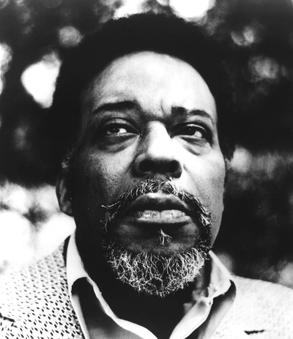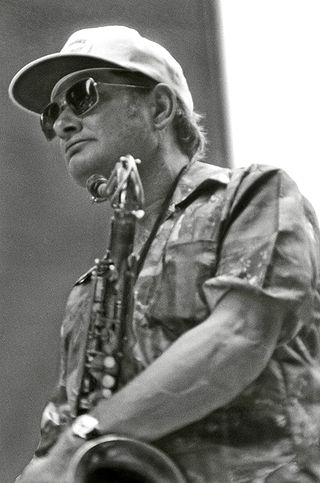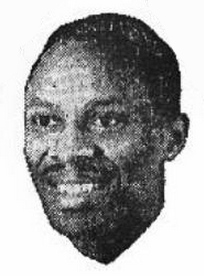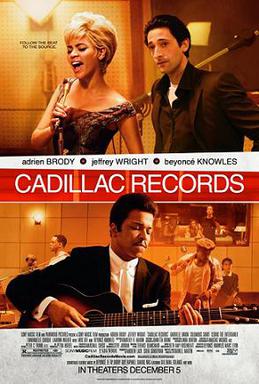Related Research Articles
Leonard Samuel Chess, best known simply as Leonard Chess, was a Polish-American record company executive and the co-founder of Chess Records. He was influential in the development of electric blues, Chicago blues, and rock and roll.

Chess Records was an American record company established in 1950 in Chicago, specializing in blues and rhythm and blues. It was the successor to Aristocrat Records, founded in 1947. It expanded into soul music, gospel music, early rock and roll, and jazz and comedy recordings, released on the Chess and its subsidiary labels Checker and Argo/Cadet. The Chess catalogue is owned by Universal Music Group and managed by Geffen Records and Universal Music Enterprises.

Eugene "Jug" Ammons, also known as "The Boss", was an American jazz tenor saxophonist. The son of boogie-woogie pianist Albert Ammons, Gene Ammons is remembered for his accessible music, steeped in soul and R&B.

John Haley "Zoot" Sims was an American jazz saxophonist, playing mainly tenor but also alto saxophone. He first gained attention in the "Four Brothers" sax section of Woody Herman's big band, afterward enjoying a long solo career, often in partnership with fellow saxmen Gerry Mulligan and Al Cohn.

Aristocrat Records, sometimes billed as the Aristocrat of Records, was founded in April 1947 by Charles and Evelyn Aron, together with their partners Fred and Mildred Brount and Art Spiegel. By September, Leonard Chess had invested in the young record company. Over time, Leonard bought the others out, and by 1948, only he and Evelyn Aron ran the firm. By early 1950, Leonard and his brother Phil had become the sole owners, and in June of that year they changed the company's name from Aristocrat to Chess Records. The Aristocrat brand was officially discontinued in January 1951.

Phineas Newborn Jr. was an American jazz pianist, whose principal influences were Art Tatum, Oscar Peterson, and Bud Powell.

Arnett Cleophus Cobb was an American tenor saxophonist, sometimes known as the "Wild Man of the Tenor Sax" because of his uninhibited stomping style. Cobb wrote the words and music for the jazz standard "Smooth Sailing" (1951), which Ella Fitzgerald recorded for Decca on her album Lullabies of Birdland.
Philip Chess was a Polish-born American record producer and company executive, the co-founder with his brother of Chess Records.

Milt Larkin was an American jazz trumpeter, bandleader and singer.

Cadillac Records is a 2008 American biographical drama film written and directed by Darnell Martin. The film explores the musical era from the early 1940s to the late 1960s, chronicling the life of the influential Chicago-based record-company executive Leonard Chess, and a few of the musicians who recorded for Chess Records.
James Joseph "Buster" Bennett was an American blues saxophonist and blues shouter. His nickname was "Leap Frog". At various times in his career, he played the soprano saxophone, the alto, and the tenor. He was known for his gutbucket style on the saxophone. He also played the piano and the string bass professionally.
"Baby Face" Leroy Foster was an American blues singer, drummer and guitarist, active in Chicago from the mid-1940s until the late 1950s. He was a significant figure in the development of the postwar electric Chicago blues sound, particularly as a member of the Muddy Waters band during its formative years.
Walter "King" Fleming was an American jazz pianist and bandleader. He was born in Chicago, Illinois.
Claude McLin was an American jazz tenor saxophonist.
Ernest Alvin Archia, Jr. known as Tom Archia, was an American jazz tenor saxophonist.
Andrew Tibbs was an American electric and urban blues singer and songwriter. He is best known for his controversial 1947 recording "Bilbo Is Dead", a song relating to the demise of Theodore G. Bilbo.
The Griffin Brothers were an American rhythm and blues band from Norfolk, Virginia, sometimes credited on record as the Griffin Brothers Orchestra. They made successful recordings with singer Margie Day, and had a no.1 hit on the Billboard R&B chart in 1951 with "Weepin' and Cryin'", featuring Tommy Brown.
Isaac Day Jr., better known as Ike Day, was a Chicago-based hard bop and bebop jazz drummer.

Joel Adams, sometimes credited as Doctor Jo Jo Adams, was an American jump blues singer, comedian, dancer, and MC, who recorded in the 1940s and 1950s.
Armand "Jump" Jackson was an American blues and rhythm and blues drummer, bandleader, songwriter, record label owner, and booking agent. He is best known for creating the forceful "sock" rhythm found on the backbeat on many blues recordings made in Chicago, Illinois, United States, during late 1940s and 1950s. He wrote a number of popular tracks including his own instrumental, "Midnight Shuffle".
References
- 1 2 3 Cohodas, Nadine (2000) Spinning Blues into Gold: The Chess Brothers and the Legendary Chess Records At Google Books. Retrieved 5 July 2013.
- ↑ “How the blues brothers behind Chess Records made all the right moves” The Guardian . Retrieved 5 July 2013.
- ↑ “Spinning Blues Into Gold” The New York Times . Retrieved 5 July 2013.
- 1 2 3 4 Campbell, Robert L. and Robert Pruter, George R. White, Tom Kelly, George Paulus “The Aristocrat Label” Retrieved 5 July 2013.
- 1 2 3 Campbell, Robert L. and Leonard J. Bukowski, and Armin Büttner "The Tom Archia Discography" Retrieved 5 July 2013.
- ↑ "Adrien Brody, Jeffrey Wright in Cadillac". Entertainment Weekly. January 22, 2008. Archived from the original on 2008-02-18. Retrieved 2008-03-28.